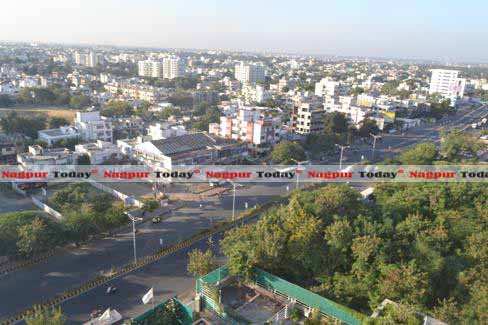As we celebrate Anti-Pollution Day, Nagpur Today had an exclusive talk with the Regional Officer of MPCB, N H Shivangi. He explained Some of the important functions of MPCB which are: To plan comprehensive program for the prevention, control or abatement of pollution and secure executions thereof, To collect and disseminate information relating to pollution and the prevention, control or abatement thereof, To inspect sewage or trade effluent treatment and disposal facilities, and air pollution control systems and to review plans, specification or any other data relating to the treatment plants, disposal systems and air pollution control systems in connection with the consent granted, Supporting and encouraging the developments in the fields of pollution control, waste recycle reuse, eco-friendly practices etc. To educate and guide the entrepreneurs in improving environment by suggesting appropriate pollution control technologies and techniques, Creation of public awareness about the clean and healthy environment and attending the public complaints regarding pollution.
While talking about the pollution in the city, Shivangi said that in the city, MPCB has provided RTMNU with funds to monitor the ambient air quality. This monitoring is done in various locations. The monitoring is done at Civil Lines, North Ambazhari Road, Hingna Road and Sadar. The monitoring at Hingna is done by MPCB themselves, while at places, it is monitoring is done by varsity students.
The monitoring is done for 8 hours a day and observed for 6 days a week, while at some only for 2 days a week.
The ambient air quality is decided by SulphurDioxide (SO2) mono-nitrogen oxides (NOx), Respirable Suspended Particulate Matter (RSPM) and Suspended Particulate Matter (SPM).
Surprisingly Nagpur is one of the safest and pollution free cities in the country. The values are calculated at micrograms per cubic meters. The test results show all values registered by the monitoring machines as way below the permissible levels at all places except Hingna. At Civil Lines (monitored for 6 days a week for 8 hours a day) the reading showed on an average 75.24 against 100micrograms per cubic meters. The reading at North Ambazhari Road, (monitored for 2 days a week for 8 hours a day) showed on an average 20 against 100 micrograms per cubic meters. The reading at Sadar, (monitored for 2 days a week for 8 hours a day) showed on an average 182.78 against 100 micrograms per cubic meters. The Sadar area also registered very high values making it the second highest polluted areas in the city. The monitoring done at the industrial area in Hingna showed very high values and way above the permissible levels. The reading at industrial area in Hingna, (monitored for 2 days a week for 8 hours a day) showed on an average 182 against 100 micrograms per cubic meters.
According to Shivangi, MPCB Regional Office functions well and strives to keep the city clean and green. They ensure that air, water, noise pollution is at its lowest in order to be beneficial for the citizens of the city. Except Diwali and Ganesh Festival sound pollution is at its least. He said that they monitor medical waste disposal of most hospitals, laboratories, blood banks, clinics etc to ensure that they adhere to the regulations of waste disposal in 4 coloured plastic covers. Some of the waste has to be sent to the incinerators to burnt and turned to ashes.
He concluded that Nagpur hosts clean air for breathing as compared to many other cities in India. However people should also do their part in helping the governmental agencies in keeping the city clean and without any pollution. People should plant more trees, use public transport instead of own car, or should avail car-pooling to ply to and fro work places, and to perform a role of good citizen in conserving and preventing pollution at all levels.
The Maharashtra Pollution Control Board which was established September 7, 1970 implements a range of environmental legislation in the state of Maharashtra, India. The MPCB functions under the administrative control of Environment Department of the Government of Maharashtra.
It is mainly responsible for: (1) Water Prevention and Control of Pollution Act, 1974, (2) Air Prevention and Control of Pollution Act, 1981, (3) Water Cess Act, 1977, (4) Some of the provisions under Environmental Protection Act, 1986 and the rules framed under this like: *Biomedical Waste (M&H) Rules, 1998, *Hazardous Waste (M&H) Rules, 2000, *Municipal Solid Waste Rules, 2000. This was established under the provisions of Maharashtra Prevention of Water Pollution Act, 1969.














